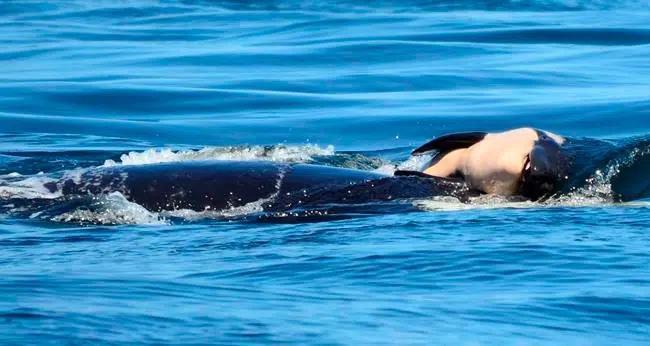
Scientists concerned about endangered orca still pushing body of her calf
VANCOUVER — An endangered orca is not letting go of her newborn calf, whose body she has been pushing through the water for more than two weeks.
The whale known as J35 was spotted in coastal waters near the border between British Columbia and Washington state Wednesday with the carcass of her calf that was born and died on July 24.
Sheila Thornton, a research scientist with Fisheries and Oceans Canada, said experts are becoming concerned that the whale’s behaviour will interfere with her ability to forage.
No intervention is planned, she said, but they will monitor her condition.
